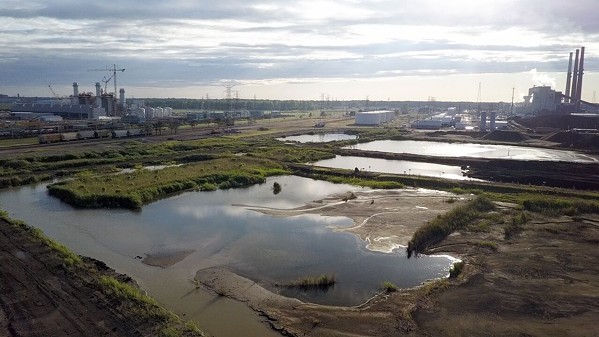
Memphis Light, Gas and Water (MLGW) found no detectable traces of arsenic or lead in drinking-water wells that are within two miles of wells where the Tennessee Valley Authority TVA recently found high levels of both toxins.
In May, the TVA discovered arsenic levels in some wells around its Allen Fossil Plant were more than 300 times higher than federal drinking water standards. Lead levels there were also higher than federal safety standards.
The contaminated water is a quarter mile from the TVA’s five new wells drilled into the Memphis Sand Aquifer, the source of Memphis’ drinking water. Those wells were approved by the Shelby County Groundwater Quality Control Board late last year and will pump water from the aquifer to cool a new natural gas energy plant that will soon replace the coal-burning Allen plant.
Last week, MLGW said it would test water from wells in the Davis well field, where it pumps drinking water, which is two miles from the contaminated TVA site. MLGW tested 10 wells there and also tested treated drinking water, which goes into MLGW’s distribution system.
“All wells and drinking water leaving the station tested below detected limits for arsenic,” reads and MLGW news released issued Thursday. Lead levels, too, were below detected limits, the utility said.
Leaders of local environmental groups said they “relieved” to find no contamination in the tests. However, they warn that “it could take decades” for those contaminants to seep into the Memphis Sand Aquifer, the source of Memphis drinking water.
That process, too, could be quickened when TVA begins pumping water from its five wells, said Ward Archer, president of Protect Our Aquifer.
“Common sense would suggest that operating five high-performance wells across the street from a leaking coal ash pond is not a good idea,” Archer said. “Again, we ask TVA to respect our drinking water aquifer and cool with grey water or with water supplied by MLGW.”
Scott Banbury, conservation program coordinator for the Sierra Club in Tennessee, said TVA should buy its water for the plant from MLGW until groundwater experts can conduct an “exhaustive study” of the geology under the TVA site and prove “without doubt, that there are no breaches in the Memphis Sand’s protective clay.”
“It’s time that the Tennessee Department of Environment and Conservation and the Shelby County Groundwater Quality Control Board step in and ensure the protection of our drinking water by staying the well permits that have been issued to TVA until proven safe,” Banbury said. “We call on local leaders to do everything in their power to protect our aquifer.”